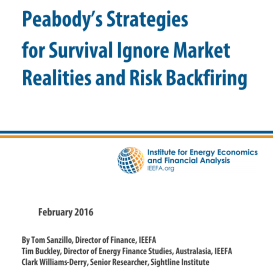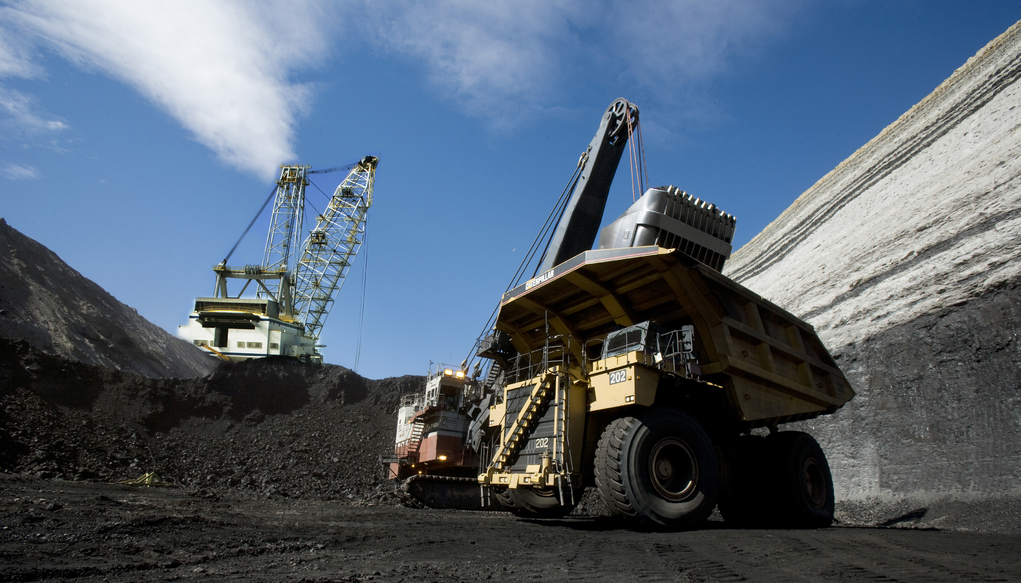
At this point, we should be accustomed to hearing bad news from the coal industry. What else but bad news can you expect from a sector that’s seen nearly 50 bankruptcies since 2012?
But today’s announcements by Peabody Energy, the world’s largest private-sector coal company, really pushed bad news to new limits. Peabody revealed that it had maxed out its credit lines, just prior to disclosing a $2 billion accounting loss for 2015. This one-two punch sent Peabody’s shares reeling, with stock prices falling by nearly a third during the day’s trading to a new, all-time low.
Still, the worst is yet to come for Peabody.
As detailed in a new report, coauthored by the Institute for Energy Economics and Financial Analysis and Sightline Institute, Peabody’s financial survival strategies are backfiring. The company is selling mines and other assets at a loss—raising cash in the short term, while undermining its balance sheet and trimming future revenues. Meanwhile, Peabody’s attempts to restructure corporate debt are based on unrealistically optimistic assumptions about future coal prices. And even if successful, a debt exchange won’t have much benefit for the company’s long-term finances, but will jeopardize the company’s ability to fulfill its mine cleanup obligations.
The only path forward for the US #coal industry is to recognize that the demand for coal is shrinking.
At best, the report concludes, Peabody’s financial maneuverings will keep unneeded coal mines open—contributing to the oversupply that has been sinking coal prices. At worst, they’ll push the company closer to insolvency, magnifying the risks that bankruptcy poses to workers and the environment.
At this point, the only path forward for the US coal industry is to recognize that the demand for coal is shrinking and that the key task facing Peabody is to figure out how to shrink gracefully. But Peabody’s financial maneuverings show that the company—and its entire industry—are still deep in denial, still flailing… and still gambling on a rebound.
Seems like King Coal is in dire need of some grief counseling, no?


Comments are closed.